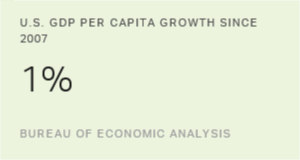WASHINGTON, D.C. -- Chile's new president, Sebastian Pinera, will face onerous challenges when he takes office Thursday. Chief among these is helping his nation recover from the devastating earthquake. Pinera is also tasked with keeping his campaign promise to create jobs and stimulate economic growth, while also addressing Chile's chronic income inequality. Chile is the wealthiest nation in Latin America, but the gap between its rich and poor is among the widest in the world-- and Gallup's 2009 survey reveals that nearly three in four Chileans (74%) believe it is getting wider, about on par with previous years.
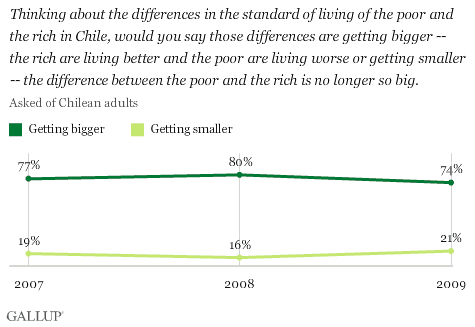
However, Chileans' satisfaction with efforts to deal with the poor in their country has increased. A little less than half of Chileans (46%) in 2009 said they were satisfied with these efforts -- up from the 30% who were satisfied in 2008.
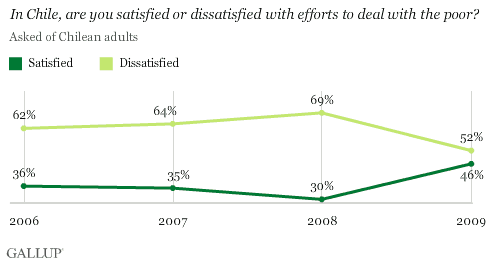
Although the quake has certainly affected some Chileans' personal economic situations, at the time of the survey, Chileans were generally positive about their personal standard of living. Slightly more than two-thirds (68%) said they are satisfied with their own standard of living, and about half (48%) said their standard of living is getting better. However, Chileans' responses varied relative to their income status. For example, Chileans in the richest 20% in terms of household income were far less likely than those in the poorest 20% to say their standard of living was getting worse --5% vs. 29%, respectively.
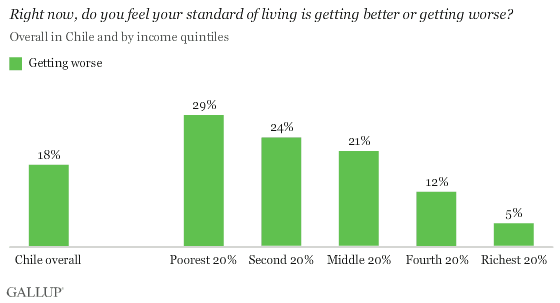
Chileans were less positive about the country's economic status. In 2009, Chile's GDP shrank by more than 1%. Chileans' outlook for their economy at the time of interviewing was mixed. About a third perceived conditions as getting better (35%), about a third said conditions are getting worse (32%), and another third volunteered that the economy is staying the same (31%).
Again, however, there were sizable differences between the richest Chileans and everyone else. Respondents in the highest income quintile were about half as likely as those in all other groups to say economic conditions in their country are getting worse.
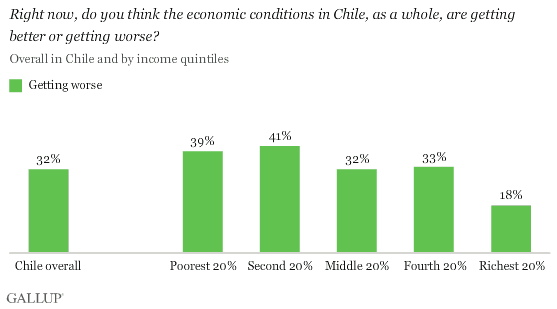
Bottom Line
Chile's economy has in recent years been one of the best performing in Latin America, and those who have likely benefited most -- the richest Chileans -- were significantly less likely than those who are less well off to share negative views of personal or national economic conditions. Income inequality remains a growing challenge in the eyes of most Chileans -- one that may complicate Pinera's task of managing earthquake relief efforts in the short-term, as well as his longer term goal of pushing the country's economy to new heights.
For complete data sets or custom research from the more than 150 countries Gallup continually surveys, please contact worldpollpartners@gallup.com or call 202.715.3030.
Survey Methods
Results are based on face-to-face interviews with 1,009 adults, aged 15 and older, conducted July 3-Sept. 8, 2009, in Chile. For results based on this total sample, one can say with 95% confidence that the maximum margin of sampling error is ±3.6 percentage points.
The margin of error reflects the influence of data weighting. In addition to sampling error, question wording and practical difficulties in conducting surveys can introduce error or bias into the findings of public opinion polls.
